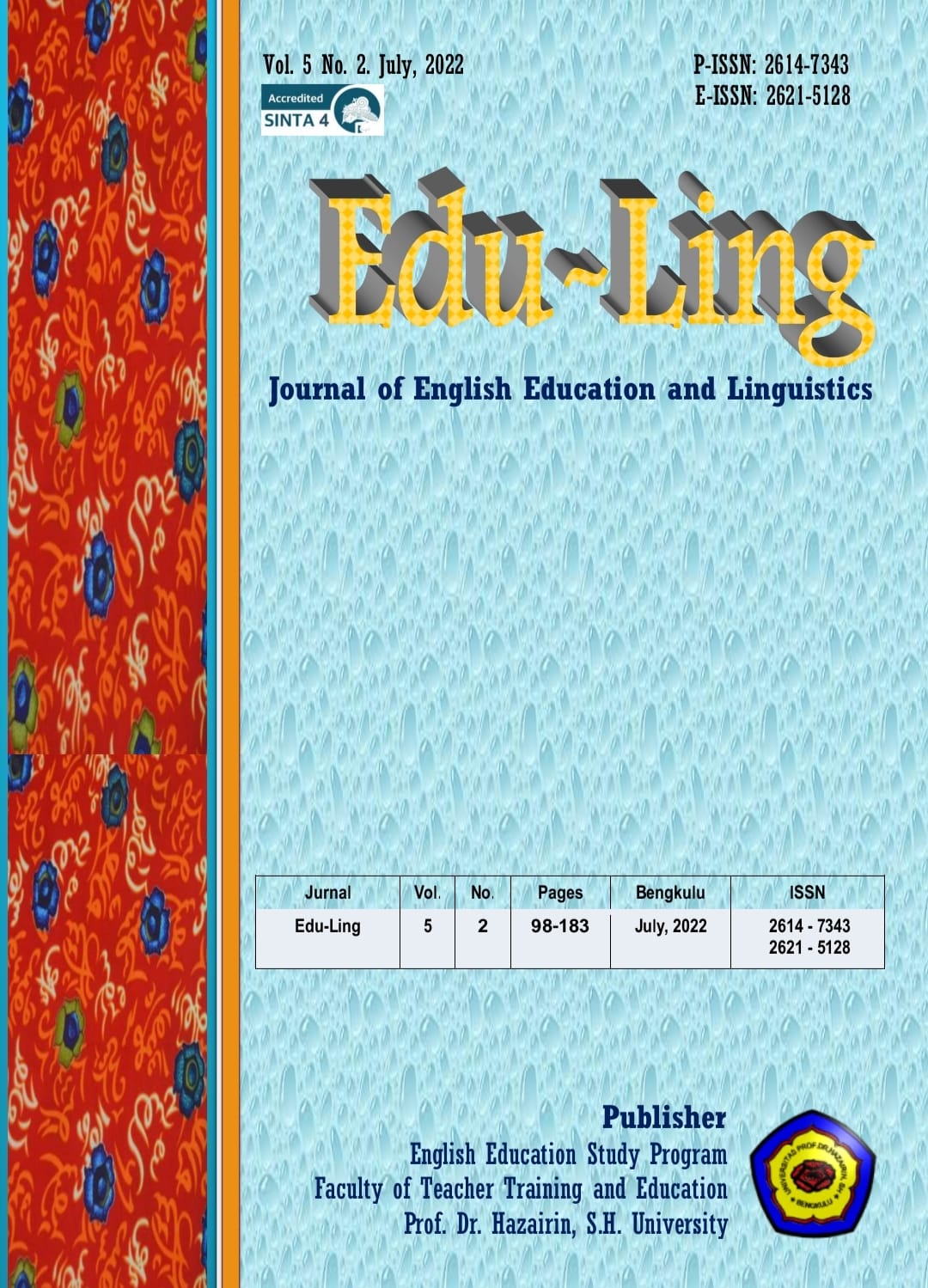An Analysis of Crossword Puzzle to English Vocabulary Mastery
DOI:
https://doi.org/10.32663/edu-ling.v5i2.2981Keywords:
Vocabulary, Crossword PuzzleAbstract
ABSTRACT
In the learning process of teachers still have a very important role in transferring knowledge to their students. In addition, success in teaching is greatly influenced by student learning activities. A teacher must have the ability to empathize, be a unique listener, and can be a facilitator for students in solving their problems by themselves.This research was a descriptive qualitative. The purpose of this research is to increase students’ vocabulary mastery by using crossword puzzle method. The subject of this research were 10 students. It consists of fourth (4) Males and six (6) Females. The instrument of this study a vocabulary test are interview and questionnaire. Based on the results of the interviewfirst, only 60% of students who do not like English because it is considered difficult and 40% like English because it is considered easy. Second, half of or 50% of students memorize a lot of vocabulary and half or 50% don't memorize a lot of vocabulary. Third, all students or 100% of students state that teachers who teach in class are boring and monotonous. The fourth is that all students or 100% know about crosswords. Based on the results of the questionnaire the highest percentage or 100% who answered "Yes" is in the second statement "crossword puzzle method is very excited. While the lowest percentage or 30% who answered" Yes "is the seventh statement" I was very excited by learning English vocabulary ". Furthermore, the highest percentage or 70% for those who answered" No "was the statement to the full" I was very excited by learning English vocabulary ". And the last lowest percentage or 20% who answered"









